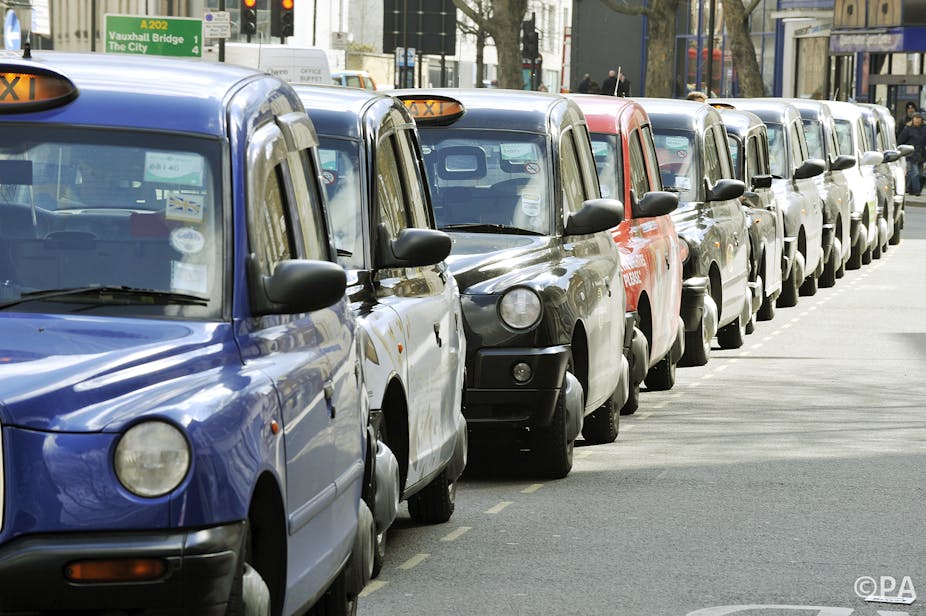London recently found itself in a state of gridlock. A group of taxi drivers created a deliberate traffic jam near the Shard as a protest. The cause for this cabbie consternation? A taxi rank – or lack thereof.
The union Unite and cab driver groups are complaining about a decision not to allow the development of a new taxi rank near to the building’s entrance. While the row seems like a straightforward issue on the surface, some cabbies also say the protest was about the London authorities cosying up to apps such as Uber, the latest app that lets people use their phone to hitch a ride. The protest could be seen as a manifestation of a wider frustration that is bubbling up in the industry.
The well established organisations that represent cabbies are feeling unsupported and under pressure. Perhaps one of the main causes of this anxiety is a flood of new, well-funded start-ups challenging the dominance of the capital’s perennial black cab. It’s an interesting corollary to note that as the competitive digital space grows so too does the demand for physical space in which traditional firms can compete.
Like other sectors trying to work out the optimal approach to peer-to-peer technology, the taxi industry is being constantly threatened by the death knell of “progress”.
This new breed of taxi company makes use of the phone in your pocket. Why bother calling a cab-office middleman or waiting on a cold street corner when a couple of taps on a phone is all it takes to order a taxi directly?
Companies such as Uber, Hailo, Lyft and Get Taxi are all vying for contention in the race to put bums on moving seats. They demonstrate innovative business models and users enjoy their simplicity, but as they continue to expand we have to wonder how they should be recognised and governed by local authorities. Uber says that all its drivers meet local regulations but it has faced legal issues many times in the past.
We also should question whether we want to live in a world in which we have to have the latest smartphone – and indeed a charged smartphone – in order to get a cab.
In the property market, AirBnB has been causing arguments between the authorities and people who want to make a bit of extra cash by renting out their homes. But the transportation industry in particular is mired in social, cultural and legal complexity. Unlike static apartments, roads are places where lots of different people interact, even if those interactions are brief and mainly indirect.
This is a London story at the moment but taxi groups all over the country and all over the world have their own fights to pick. Uber, Hailo, Lyft and many others have faced regulatory opposition in America, Canada, and Europe. As they continue to expand, further conflict is inevitable and perfectly understandable. The services need to be able to justify their existence not only in terms of ease of use, but also through assurance of passenger safety and equitable pricing. Legislation can help these companies to develop a guaranteed level of service provision which matches the quality people expect from the humble black cab.
What legislation cannot do is force innovation on those unwilling to adapt to social change. Black cabs are, after all, notoriously expensive. Perhaps the onus should be on the old system to adapt by lowering prices.
The history of transportation in London is full of technological adaptation, but more importantly social adaptation too. The first Hackney carriages were ultimately replaced by the smaller, two-wheeled Hansom Cab in the 19th century largely due to the social traffic problems that the latter helped to solve. When it no longer became ideal to move all the people living in London around overground they started digging the tube.
As the philosopher Boethius once remarked:
It’s my belief that history is a wheel. ‘Inconstancy is my very essence,’ says the wheel. ‘Rise up on my spokes if you like but don’t complain when you’re cast back down into the depths’.
If all else fails perhaps Londoners could just cycle away from the tyranny of four wheels. The authorities have of course already come up with a scheme to help people do just that.

